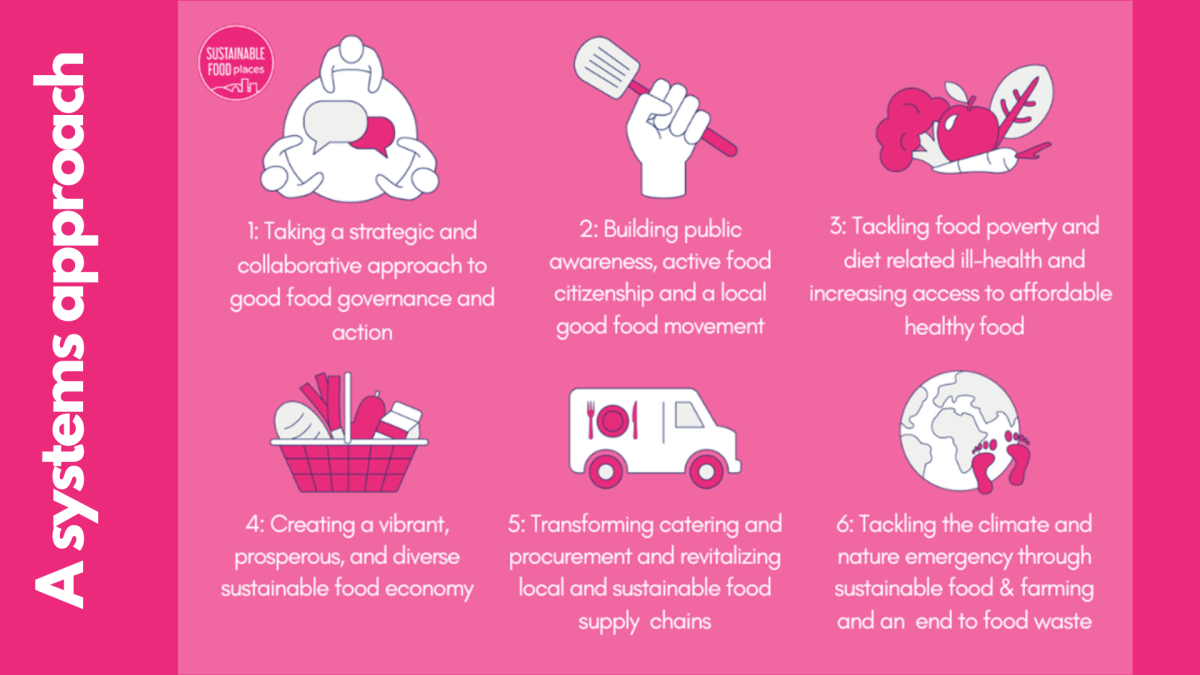
We live in a complex world of unseen connections. If we’re talking about bettering the food system, then we need to take a holistic “systems” approach to possible solutions. So, what is “systems thinking”? It means to consider the whole, rather than focus on the parts. It means to think about the connections between the elements of a situation, and their relationships, rather than define a single issue with a single linear solution.
Take food poverty as an example. Why are so many people in the UK suffering from food poverty? It’s rarely a simple case of ‘they don’t have enough money to buy food’, there will be a myriad of reasons why any one person finds themselves in food poverty. These reasons could be personal, infrastructural, governmental, cultural, seasonal… usually there is a whole spectrum of reasons, some laying far beyond a single person’s control.
Within the Sustainable Food Places programme, we take the view that to make healthy and sustainable food a defining characteristic of where people live, we must take a systems view of the underlying issues that prevent this from being the case. We understand, that if we just tackle food poverty, we won’t get very far.
So, we take a holistic approach and encourage local food partnerships, local government, National governments, and interested individuals and businesses to take a bird’s eye view of what sort of food systems they have in their area. We have, in collaboration with our local and regional partners, developed a framework that forms the backbone of what makes a Sustainable Food Place so special – the 6-key issue framework.

So, what are the 6-key issues that we have come up with?